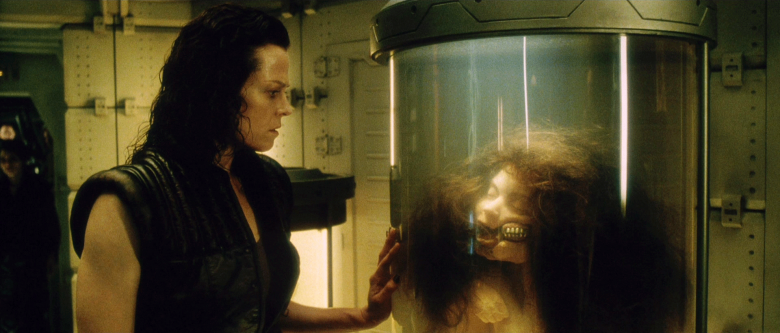Reviews
Jean-Pierre Jeunet
USA, 1997
Credits
Review by Michael Nordine
Posted on 02 May 2012
Source 20th Century Fox BRD
Categories Favorites: Transformations
I’m not her
The Alien franchise is a catalogue of recurring grief and loss, so much so that at the end of its third installment (spoilers herewith) our heroine, the indefatigable Ellen Ripley, is killed. Alien: Resurrection would therefore appear to be an unnecessary addition to an already-complete series. And it would be, were it not for the fact that its very existence further compounds the sorrow upon which the series is practically founded: having already taken her own life in order to prevent the eponymous creatures from spreading, Ripley is immediately made to encounter them once more. Even now, some two-hundred years after her death and in a new incarnation, she’s little more than a pawn.
When speaking of these films, people tend to focus on Ridley Scott’s Alien and James Cameron’s Aliens. Both are generally regarded as classics whose reputations have been sullied somewhat by two superfluous, unworthy sequels. Alien^3^, which counts as David Fincher’s first film if you discount the fact that he walked out on it during the editing stage, is nevertheless cited by some as being under-appreciated. It is. (When first I became obsessed with the franchise I considered it the best of the bunch.) But the extent to which it is underrated pales in comparison to Resurrection. It speaks to the strength of the entire franchise that Jean-Pierre Jeunet’s attempt, which ranks fourth in quality among the four entries, is nevertheless more than worthwhile as a closing statement. Like many a sequel, its first line is a quotation from an earlier installment:
My mommy always said there were no monsters, no real ones. But there are.
Originally spoken by a young girl named Newt in Aliens, these two short sentences eventually take on the air of a thesis statement for the entire franchise on par with the first film’s tagline: In space no one can hear you scream. Newt’s words evoke the primal, even unbelievable terror of the aliens and, in this context, carry the added weight of being spoken by Ripley herself, who in that earlier film came to think of the girl as a surrogate daughter. By the beginning of Aliens, Ripley had been in cryogenic sleep for so long that her own daughter was now dead. By the beginning of Alien^3^, Newt was too. And now, in Resurrection, the original Ripley has long since joined them. The aliens (semi-officially dubbed “xenomorphs”) are monsters not only because they kill every living being they come into contact with but because they irrevocably alter the course of our heroine’s life for the worse. The Alien movies span hundreds of years and more than one life cycle for Ripley - who remains one of the best franchise heroes ever - and at no point in the series does this once-normal woman’s life not revolve around staving off the creatures. They aren’t just the bane of her existence; they are her existence. Not even death saves her from them, as the reason she sacrificed herself in the first place - she’d been impregnated with a Queen - is the reason she’s now been brought back to life.
With one complication: Ripley is now part-xenomorph. The alien that was inside her at the time of her death bonded with her DNA, and it shows itself immediately. Her fingernails have a silver tint to them, her blood is slightly corrosive, and upon fully awakening for the first time she emerges from an embryo-like plastic sheet and silently examines herself as though looking at a stranger in the mirror. This, the eighth attempt at cloning Lieutenant Ellen Ripley, immediately knows she isn’t quite herself but nevertheless has inherited memories and instincts. Sigourney Weaver is at her most menacing in the role, what with her enhanced strength and almost telepathic connections to the other aliens onboard the military vessel where the film takes place, but there’s also something childlike about her: Ripley says “fuck” when attempting to repeat the word “fork” and does basketball tricks as a form of schoolyard taunting. But the most important aspect of her hybridity is that the maternal bent she once reserved for Newt - who casts almost as large a shadow over the series as do the aliens themselves - now extends not only to Winona Ryder’s Call but, more troublingly, to the creatures one character calls the “nasties.” Resurrection storylines have been done before (mainly in slasher sequels of varying quality), but this element alone justifies it as the film’s main conceit.
The push-pull between Ripley’s two competing halves is constant throughout, but even without it one suspects she might still carry disdain in her voice when muttering the word “human.” More than one corporate and military entity has screwed her over throughout the series, and so she’s learned to be nearly as wary of people as she is of the aliens: the only good people she’s known are dead, not all of them due to the xenomorphs. Here, in Resurrection, Ripley is joined by the usual cross-section of cheats, liars, and eventual allies: raspy-voiced Elgyn (who exits far too early), dreadlocked Christie (easily the coolest character in the film), wheelchair-bound Vriess. For tertiary characters with virtually no backstory, the bunch proves exceptionally interesting. The first of them is killed off early on in order to remind us of how quickly and pointlessly death comes in this world; the rest of their deaths are spread out to keep us wondering when the other shoe will drop.
Each Alien film tells us something new about its eponymous antagonists, who have the tendency to be more fascinating than their human counterparts. In Resurrection, we learn something as awesome to behold as it is terrifying to consider: they can swim. In a sequence as stunning as any in the series, we watch two of the thirteen aliens aboard the USM Auriga chase Ripley, Call, and the other survivors through a flooded section of the now-abandoned ship. The fluidity of their movements resembles that of eels. Neither creature makes a sound but, upon being caught by one and pulled away to a watery end, a woman lets out a muffled scream of utter terror. The aliens don’t hunt and kill out of malice or spite; it’s simply their nature. Pondering the ways in which these instincts have taken hold in Ripley herself is never less than troubling.
It isn’t an act of kindness that sets this all in motion. Ripley is resurrected by the entity now known as the United Systems Military in order to extract the Queen from inside of her and, presumably, weaponize the aliens it births. When at one point in the film Ripley comes across a door labeled “1 - 7” she looks at the “8” imprinted on her arm and knows what awaits her inside. I remember looking away in a mix of horror and embarrassment the first time I watched as Ripley surveys a laboratory full of failed clones, eventually coming across one who asks to be put out of its misery. Ripley is reduced to tears as she does so, burning down the rest of the lab with a flamethrower for good measure. Her pain doesn’t stop there. The same DNA-mixing that changed her has also altered the Queen, who eventually gives birth to a pale, especially horrid, and somehow humanoid xenomorph. The sounds it makes are both recognizably human and pathetic, its eyes dark but not empty. Shortly after birth, this new hybrid rejects the Queen as its mother and kills her in favor of Ripley, who can’t help but feel connected to it somehow. Alien: Resurrection ends with the death of this new creature in perhaps the grisliest, most violent and drawn-out scene of the entire series. “I’m sorry,” Ripley says. By this point, so are we—for both of them.
Near the end of Alien^3^, Ripley says to the alien then hunting her that “You’ve been in my life so long, I can’t remember anything else.” Here, in Resurrection, she confides to Call that she can no longer remember the name of the little girl she once loved like her own daughter. It’s like forgetting the word for happiness or not remembering what sunlight looks and feels like. She’s experienced the death of countless loved ones and even met her own end, but this inability to simply recall the name of someone she’s lost seems worse than any of it.
More Favorites: Transformations
-
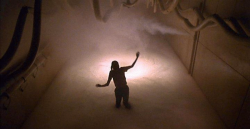
Altered States
1980 -

Alien: Resurrection
1997 -

In the Mouth of Madness
1994 -

Now, Voyager
1942 -
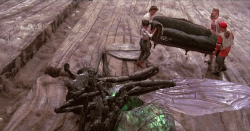
Honey, I Shrunk the Kids
1989 -
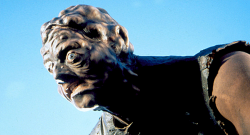
The Toxic Avenger
1984 -
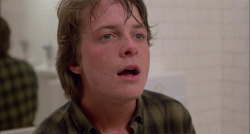
Teen Wolf
1985 -

Teen Wolf Too
1987 -

An American Werewolf in London
1981 -

The Curse of the Cat People
1944 -

Face/Off
1997 -

That Obscure Object of Desire
1977 -

Now, Voyager
1942 -
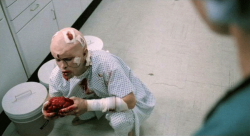
From Beyond
1986 -
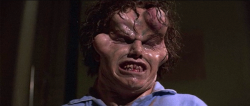
The Beast Within
1982 -
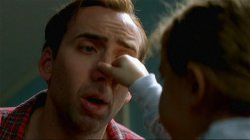
The Family Man
2000 -
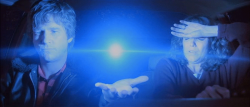
Starman
1984
We don’t do comments anymore, but you may contact us here or find us on Twitter or Facebook.



